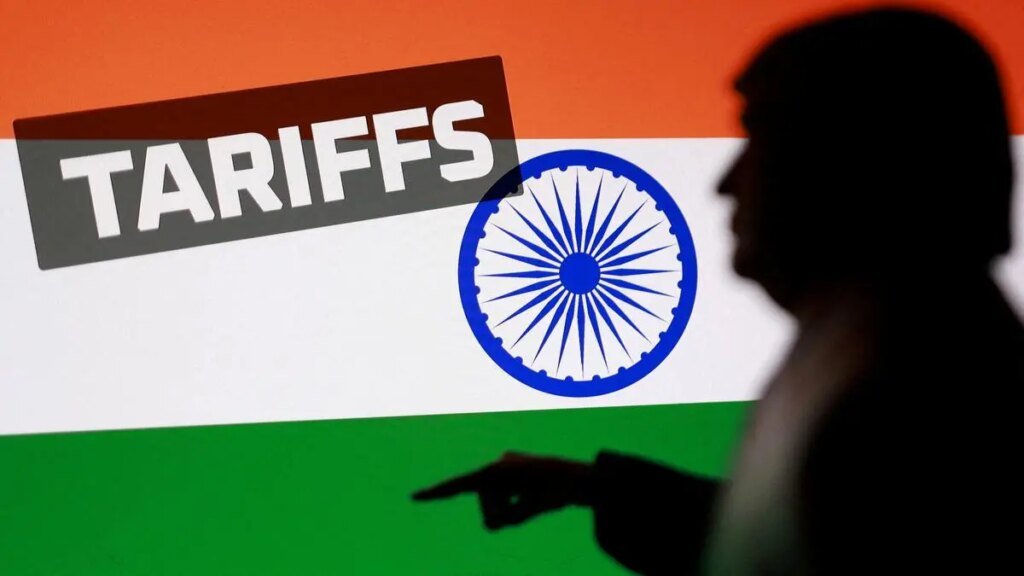Donald Trump tariffs: Why did Nifty50, BSE Sensex tank in trade? Top reasons stock for market fall
Stock market today: Nifty50 and BSE Sensex, the Indian equity benchmark indices, crashed in trade on Thursday, a day after Donald Trump’s 50% tariffs on India came into effect. While Nifty50 closed at 24,500.90, down 211 points, BSE Sensex ended at 80,080.57, down 706 points or 0.87%.The newly imposed tariffs emerged as the main factor affecting market performance, whilst investors simultaneously grappled with additional challenges, including unfavourable global market indicators and continuous withdrawal of foreign investments. These factors collectively intensified the market decline, causing the benchmark indices to fall further.The severe downturn resulted in BSE-listed companies losing Rs 4.14 lakh crore in market capitalisation, bringing the exchange’s total market value down to Rs 445.80 lakh crore.
Why did the stock market fall today? Top reasons
50% US tariffs on IndiaThe new 25% additional tariffs from Washington on Indian goods became effective on Wednesday, creating uncertainty for exporters and overall market sentiment.Dr. V.K. Vijayakumar, Chief Investment Strategist at Geojit Investments, believes these duties will affect equities temporarily but shouldn’t cause widespread concern.“The 50% tariff imposed on India, which has already come into effect, will weigh on market sentiments in the near-term. But the market is unlikely to panic since the market will view these high tariffs as a short-term aberration which will be resolved soon,” Vijayakumar said, noting US Treasury Secretary Scott Bessant’s statement that “at the end of the day India and US will come together.”Additionally, Vijayakumar identified high valuations and poor earnings performance as ongoing issues. He expects export-focused industries to experience short-term difficulties, whilst suggesting investors consider moving towards reasonably priced domestic consumption sectors. He recommends transitioning from volatile small-cap investments to more stable large-cap consumer stocks for better risk management.FII sell-off continuesForeign institutional investors extended their selling momentum for the third consecutive session. Exchange data showed that on August 26, FIIs sold shares valued at over Rs 6,500 crore. Conversely, domestic institutional investors emerged as net buyers, investing Rs 7,060 crore.The selling pattern has affected multiple sectors. In early August, FIIs withdrew approximately Rs 31,900 crore across eight sectors, with financial and technology sectors experiencing the highest outflows. Net equity sales reached Rs 20,976 crore in the first half of the month, following July’s withdrawals and pushing the total outflows for the year to Rs 1.2 trillion.Earlier this month, Jefferies reported that foreign portfolio investor presence in India had reached its lowest level in a decade. Despite consistent domestic inflows providing support, analysts suggest that any market recovery could remain unstable.Dr. V.K. Vijayakumar of Geojit Investments emphasised the importance of domestic institutional support. “The strong pillar of support to the market is the aggressive buying by DIIs flush with funds,” he noted, explaining that domestic investments are helping balance the foreign outflows.Global markets in redAsian markets displayed weakness on Thursday as investors weighed Nvidia’s exceptional earnings against growing worries regarding the company’s business interests in China.The MSCI Asia-Pacific index, excluding Japan, fluctuated throughout the session before declining 0.2%. Similarly, US stock futures declined during extended trading hours, with S&P 500 e-minis dropping 0.2% and Nasdaq futures declining 0.4%. Despite reporting outstanding results, Nvidia’s shares retreated as uncertainties persisted over its Chinese operations amidst ongoing US-China trade tensions.Japanese markets showed volatility following news that Tokyo’s chief trade representative cancelled a planned visit to Washington, postponing discussions about a recently concluded trade agreement. The Nikkei 225 registered a 0.4% increase. In contrast, Hong Kong’s market performance weakened, with the Hang Seng Index recording a 1% decline.Market sentiment further deteriorated following US political developments, as President Donald Trump announced the removal of Federal Reserve Governor Lisa Cook. This decision raised questions about the central bank’s autonomy, although Cook has indicated her intention to legally contest the dismissal.Technicals show market weaknessTechnical indicators suggest market weakness ahead, although some strategists anticipate a potential short-term recovery.At Geojit Investments, Chief Market Strategist Anand James observed bearish conditions, identifying 24,071-23,860 as target levels. He acknowledged that the sharp 2% drop over four sessions could spark a recovery, with 24,780 and 24,870 acting as resistance points. “Inability to float above 24,630 or clear 24,900 will signal that bears continue to have the upper hand,” he said.(Disclaimer: Recommendations and views on the stock market and other asset classes given by experts are their own. These opinions do not represent the views of The Times of India)



